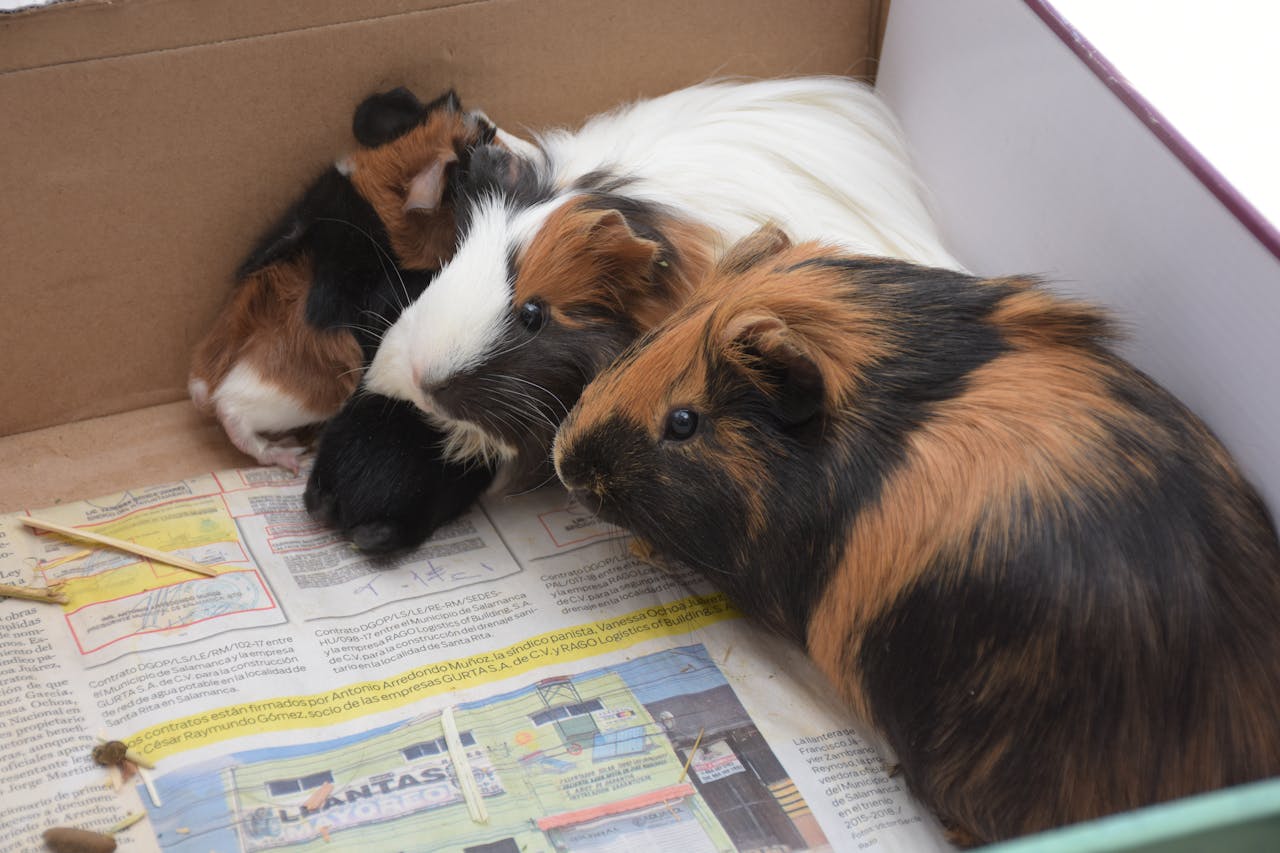Guinea pigs may be small, but when it comes to their health, even a tiny change can be a big deal. One of the most common—and serious—health issues in guinea pigs is a respiratory infection. The tricky part? These infections often start off mild and can progress quickly. At Killarney Animal Hospital, we’ve seen how early detection can make all the difference in recovery.
Why Guinea Pigs Are So Prone to Respiratory Problems
Unlike dogs or cats, guinea pigs have a very delicate respiratory system. A sudden drop in temperature, high humidity, dusty bedding, or even stress can set the stage for an upper respiratory infection (URI). And because they can’t breathe through their mouths like other animals, any obstruction in the nasal passages becomes a bigger problem, faster.
Additionally, guinea pigs can carry bacteria like Bordetella or Streptococcus that remain dormant until the immune system weakens—turning a simple sniffle into something life-threatening.
Subtle Signs That Something’s Off
The first signs of a respiratory infection in guinea pigs aren’t always dramatic. That’s why it’s so important to know what to look for. Some of the early red flags include:
- Frequent sneezing or a slight cough
- Runny nose or eyes (clear or cloudy discharge)
- Loud or labored breathing—wheezing, clicking, or rattling sounds
- Decreased appetite or ignoring favorite treats
- Lethargy or hiding more than usual
- Weight loss—even a small drop is significant for a guinea pig
- Shivering or puffed-up fur
These symptoms might look like a mild cold in a human, but in guinea pigs, they can escalate quickly without proper treatment.
Don’t Rely on Over-The-Counter Fixes
Guinea pigs are sensitive to medications—some drugs that are safe for other small pets can be toxic to them. Never attempt to treat a suspected respiratory infection at home. At Killarney Animal Hospital, we customize treatments specifically for guinea pigs, using safe antibiotics and supportive care like fluids, nebulization, or syringe feeding if necessary.
Self-treatment can not only delay proper care but may also worsen the infection or create drug resistance.
Creating a Healthier Environment to Prevent Future Infections
Prevention is just as important as early detection. Here’s how you can help reduce the risk of respiratory issues:
- Keep the cage clean and dry—change bedding regularly and avoid strong ammonia buildup
- Avoid dusty or scented bedding—use paper-based or fleece bedding instead of wood shavings
- Maintain a stable room temperature—ideally between 18°C to 24°C (65°F to 75°F)
- Keep the cage in a low-stress, draft-free area
- Don’t house guinea pigs with rabbits—rabbits can carry Bordetella, which is dangerous to guinea pigs
- Provide a balanced diet rich in vitamin C to boost immune health
Our team at Killarney Animal Hospital can also recommend the best bedding and diet options for your guinea pig’s long-term health.
When to See a Vet (And Why Sooner Is Better)
Because guinea pigs hide illness so well, any sign of respiratory trouble warrants a check-up—preferably within 24 hours of noticing symptoms. What looks like “just a sneeze” can turn into pneumonia in a matter of days.
If you think your guinea pig may be showing early signs of illness, don’t wait. Call Killarney Animal Hospital at 604-433-5500 to schedule an exam. We’ll make sure your little one gets the care they need, fast—and with the gentle approach every small pet deserves.

